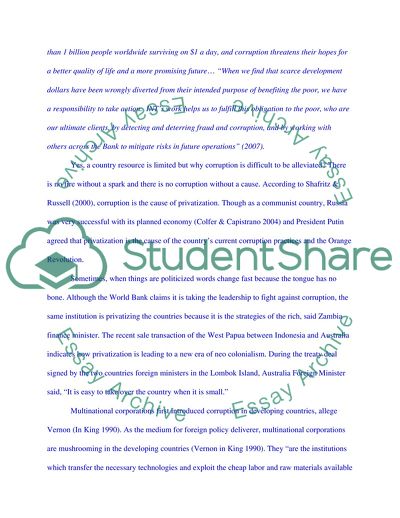Cite this document
(In Pursuit of Socio-economic Justice: A Critique of Anti Corruption Article, n.d.)
In Pursuit of Socio-economic Justice: A Critique of Anti Corruption Article. https://studentshare.org/politics/1708140-in-pursuit-of-socio-economic-justice-a-critique-of-anti-corruption-strategies-in-eritrea
In Pursuit of Socio-economic Justice: A Critique of Anti Corruption Article. https://studentshare.org/politics/1708140-in-pursuit-of-socio-economic-justice-a-critique-of-anti-corruption-strategies-in-eritrea
(In Pursuit of Socio-Economic Justice: A Critique of Anti Corruption Article)
In Pursuit of Socio-Economic Justice: A Critique of Anti Corruption Article. https://studentshare.org/politics/1708140-in-pursuit-of-socio-economic-justice-a-critique-of-anti-corruption-strategies-in-eritrea.
In Pursuit of Socio-Economic Justice: A Critique of Anti Corruption Article. https://studentshare.org/politics/1708140-in-pursuit-of-socio-economic-justice-a-critique-of-anti-corruption-strategies-in-eritrea.
“In Pursuit of Socio-Economic Justice: A Critique of Anti Corruption Article”. https://studentshare.org/politics/1708140-in-pursuit-of-socio-economic-justice-a-critique-of-anti-corruption-strategies-in-eritrea.


